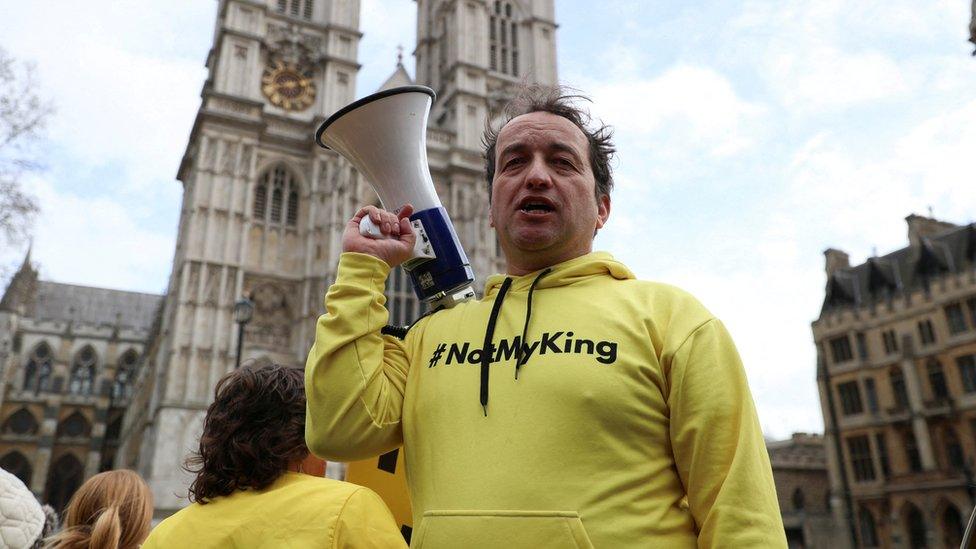Met Police will apologise if mistakes made over Coronation arrests
- Published
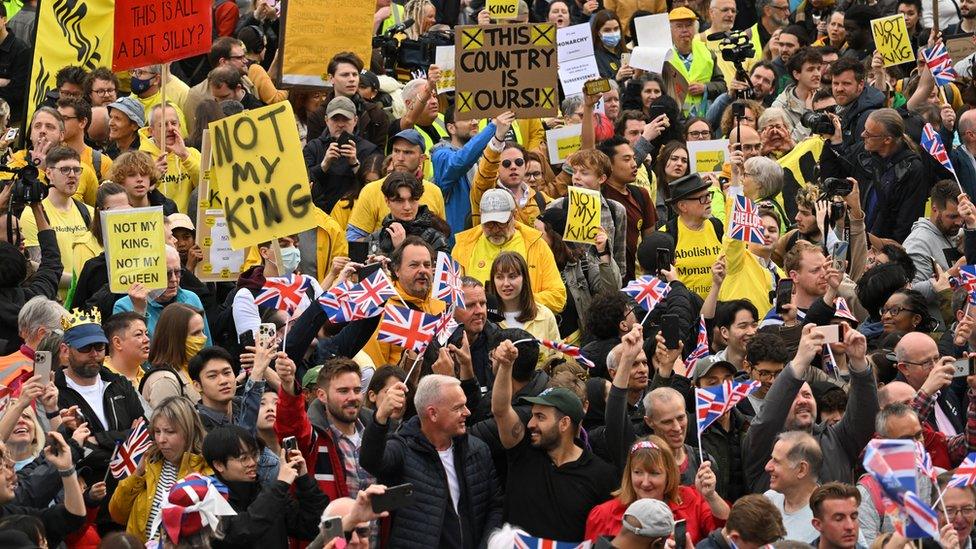
The Met said most of those who protested at the coronation were not arrested
One of the Met Police's most senior officers has said the force will apologise if it finds mistakes were made in its policing of the Coronation.
It has been criticised for some of the arrests made, which included six anti-monarchy protesters.
Asst Commissioner Louisa Rolfe told the London Assembly on Wednesday it is reviewing its policing of the event.
She said: "If we've got things wrong, we will apologise to individuals affected and we'll work through that."
The members of the group Republic were detained for for 16 hours before being released and were later told no further action would be taken.
Three women's safety volunteers were also incorrectly arrested before the Coronation and were also released later without charge.
Met Commissioner Mark Rowley had previously said the force had "significant" intelligence that protesters were planning to disrupt the coronation of King Charles III.
Questioned by the London Assembly Police and Crime Committee, AC Rolfe was asked if officers were acting on evidence.
"The way that we work and we operate, is that we have to respond swiftly to a developing intelligence picture and it may not always be feasible or practical to ensure evidence before an arrest is made," she said.
She added the law allowed officers to act on "reasonable suspicion".
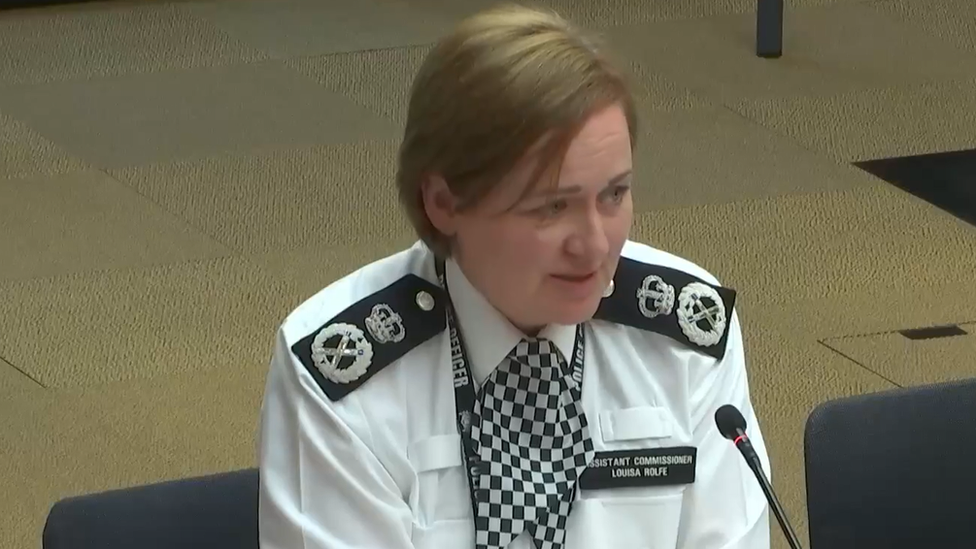
Asst Commissioner Louisa Rolfe said officers acted in a way to keep the public safe
She added: "They will make inquiries to validate the information they hold but also they will sometimes need to make very fast time decisions to ensure that they're carrying out their duties to ensure the safety and security of an event."
She later told the committee: "We want to understand the detail of what happened, and those individual arrests, and the circumstances surrounding them, will be fully explored in our debrief process."
AC Louisa Rolfe said there was currently no timeline for the review.
The female safety workers were carrying rape alarms. The Met had said previously that some protesters had been planning to use to frighten participating horses.
Watch: Ros Atkins on... the Coronation arrests
The group of six protesters, including the chief executive of Republic Graham Smith, was arrested on the day of King Charles III's coronation under a controversial new law - the Public Order Act 2023 - which allows police greater powers to deal with protests.
They were held on suspicion of going equipped to lock-on, which is when a person attaches themselves to an object so that they cannot be easily moved.
Asked if officers were using their new powers correctly, AC Rolfe said officers understood the practical application of the new legislation.
The Met's security operation, which involved 11,500 officers and staff and volunteers, was also praised by several committee members.
A total of 64 arrests were made during the policing operation for the Coronation, the Met previously said.
It added 52 of those were related to concerns people were going to disrupt the event.

Follow BBC London on Facebook, external, Twitter , externaland Instagram, external. Send your story ideas to hellobbclondon@bbc.co.uk, external
- Published17 May 2023
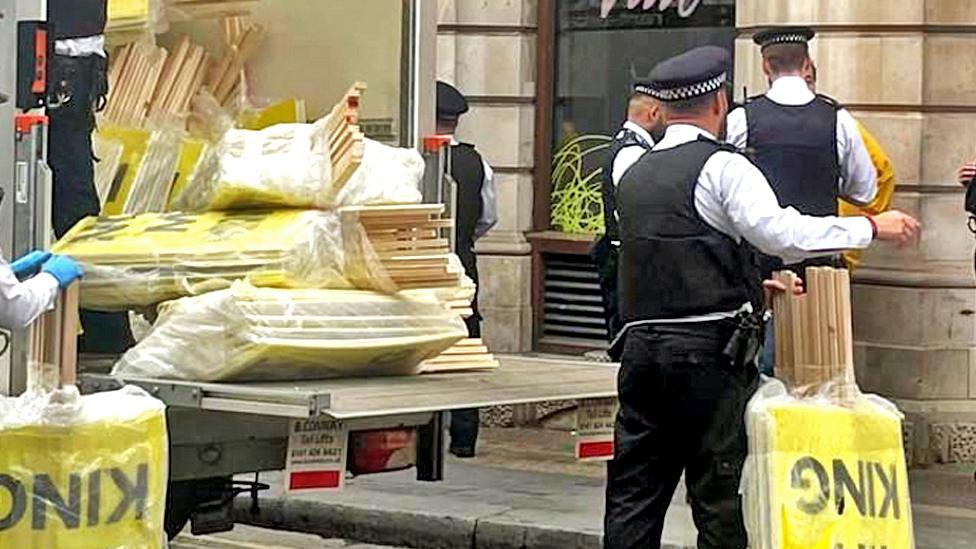
- Published9 May 2023
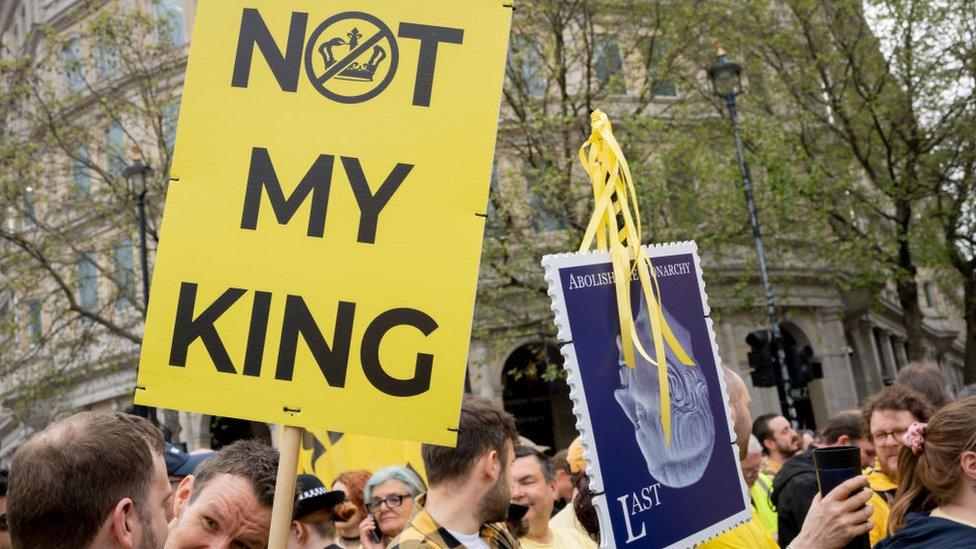
- Published9 May 2023

- Published9 May 2023

- Published6 May 2023
